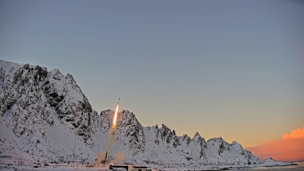The Space Force is not keeping pace with adversaries’ advancing capabilities—or meeting demand from the rest of the military for space services, according to a top officer.
“The Space Force doesn’t have the Guardians or the budget that it needs,” Brig. Gen. Anthony Mastalir, the commander of United States Space Forces Indo-Pacific, said Tuesday at the Mitchell Institute, a nonpartisan think tank.
Fewer than 10,000 Guardians clock in each day, and the service accounts for roughly 3% of the Pentagon’s budget—too little, according to Mastalir, given how critical space is to everything the Defense Department does from GPS to precision munitions to intelligence collection.
Growing pains: DoD stood up US Space Forces Indo-Pacific nearly two years ago. While the command has grown, Mastalir said he still relies on the Air Force command in the region for many of the support functions it takes to run a headquarters.
Strong demand: As service members realize how many military operations are enabled by space, demand for more capability in orbit in the IndoPacific is only growing, Mastalir said.
“We’re trying to grow the component at a pace that at least keeps parity with the demand signal, but the demand signal is increasing rapidly because all of the joint force is very, very quickly learning that if you want to put together a plan, you’d be very well advised to have a Guardian on that planning team,” he said.
Friends in strategic places: Mastalir said he already works closely with allies in the region, including Australia, Japan, and South Korea, but that he’s looking to boost multilateral relationships rather than relying solely on bilateral cooperation.
He also said the service is still on track to open the doors of the Space Force’s Japan component by the end of the year, which would help make sure space troops are available to combatant commanders in the region. It would have a similar mission to the component in South Korea, which was established in 2022.




